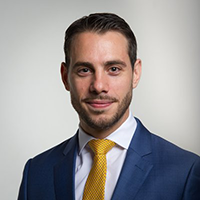 David Passarelli | Moderator
David Passarelli | Moderator
Dr David Passarelli is Director of UNU’s Centre for Policy Research where he bears overall responsibility for the direction, organization, and administration of the Centre’s research. He is also a member of UN University’s Senior Management Group, and serves as UNU’s representative to the UN High-Level Committee on Programmes (HLCP).
Amilcar Tivane | Panelist
Vice Minister of Economy and Finance in Mozambique, contributing to the nation's economic policy and financial management.
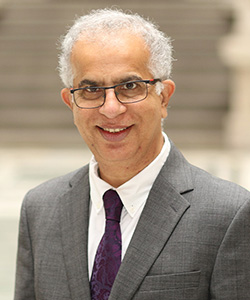 Adnan Khan | Panelist
Adnan Khan | Panelist
Professor Adnan Khan is the Chief Economist and Director for Economics and Evaluation Directorate in the Foreign, Commonwealth & Development Office. Adnan has focused his career on advancing the understanding of development economics, political economy, entrepreneurship, and public sector reform. Adnan has used real-time, cutting-edge analytical work that feeds directly into policy, applying frontier research on real-world questions conducted through collaboration with policy partners to achieve policy and academic impact.
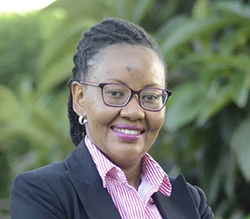 Betty N. Wainaina | Panelist
Betty N. Wainaina | Panelist
Betty is the Associate Director of the Multilateral Reform Program at NYU-CIC, where she leads the program of work that seeks to advance policy options for strengthening the multilateral system covering the UN and IFIs and their approaches towards addressing fragility, conflict and violence. With a career spanning over 20 years, she has combined both field operational experience in developing countries, and contributed to global development policy thinking.
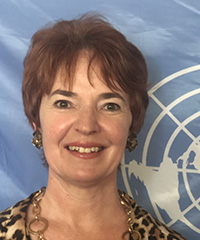 Penelope Hawkins | Panelist
Penelope Hawkins | Panelist
Dr. Penelope Hawkins is Acting Director of the Debt and Development Finance Branch within the United Nations Conference on Trade and Development (UNCTAD). In her current position, she researches and engages with member country representatives and the broader civil and academic society on sustainable sovereign debt, financing for development and the nexus between debt and climate finance. She represents UNCTAD at the G20 International Financial Architecture Working Group meetings.
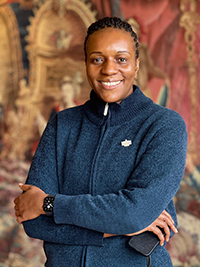 Blandina Kilama | Panelist
Blandina Kilama | Panelist
Blandina Kilama is Personal Assistant to the President of the United Republic of Tanzania in Economic Affairs. She has practical experience in research, training, management, and policy analysis, gained as a researcher at a think tank based in Dar es Salaam, REPOA. Her engagement in dialogues, forums, and local and international publications her derived from her work in economic transformation, financial inclusion, value chains in agriculture and nutrition, and poverty. Her passion for development has seen her become the CEO of the Economic Society of Tanzania—a non-profit that seeks to promote economic research and policy advocacy. To showcase women in productive sectors and encourage mid-career women to stay at work, she initiated Sneakers and Heels Exposition, a platform highlighting women in male-dominated sectors (sneakers) and women in decision-making positions (heels). She holds a PhD from Leiden University in the Netherlands, a Master’s (MPAID) from Harvard Kennedy School, and a Bachelor’s in Economics from the University of Dar es Salaam.
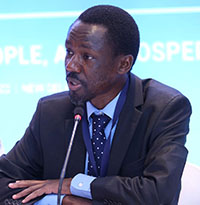 Kwame Owino | Panelist
Kwame Owino | Panelist
Kwame Owino is the Chief Executive Officer (CEO) of the Institute of Economic Affairs, a think tank on public policy that is based in Kenya. He undertakes and oversees research in IEA-Kenya’s key policy areas on public expenditure and revenue analysis, international trade, economic regulation, devolution and the use of futures methodologies to inform public affairs in Kenya.
 Join the network
Join the network David Passarelli | Moderator
David Passarelli | Moderator Adnan Khan | Panelist
Adnan Khan | Panelist Betty N. Wainaina | Panelist
Betty N. Wainaina | Panelist Penelope Hawkins | Panelist
Penelope Hawkins | Panelist Blandina Kilama | Panelist
Blandina Kilama | Panelist Kwame Owino | Panelist
Kwame Owino | Panelist